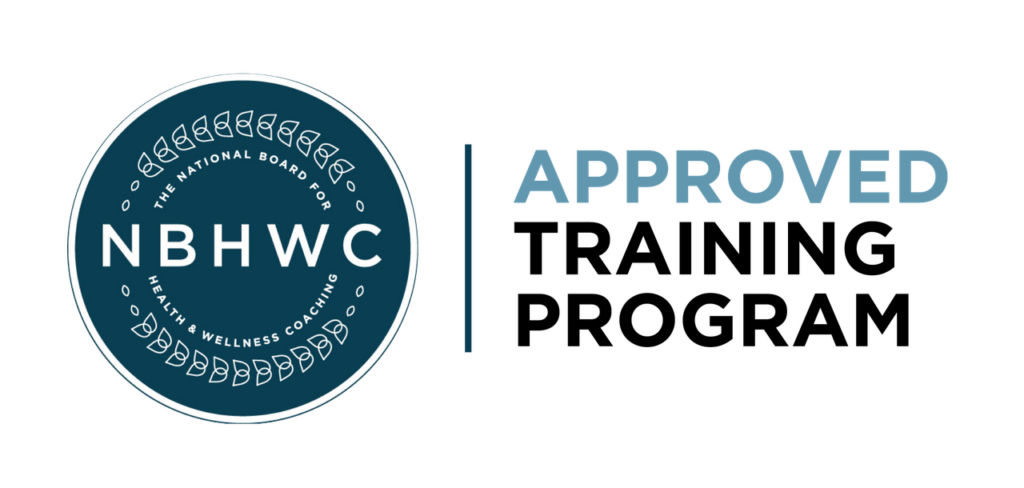How Becoming a Board-Certified Health & Wellness Coach Can Enhance Your Career
Coaching is not universally regulated —meaning anyone can hang a sign outside their door and call themselves a coach, regardless of whether they have had any formal training.
As coaching gains recognition for its significant impact in supporting the healthcare industry, such as assisting individuals in achieving personal health goals, lifestyle transformations, and managing chronic diseases, professional health & wellness coach training standards and requirements are emerging.
The Evolution of Health Coaching
The National Board for Health & Wellness Coaching (NBHWC)—an independent non-profit organization made up of industry thought-leaders for health & wellness coach training and education programs—has taken the lead in establishing professional standards for the industry.
In 2016, they partnered with the National Board of Medical Examiners (NBME) to establish a board certification examination. It has since certified more than 10,000 health & wellness coaches to work in healthcare, employee wellness, government, and private practice.
In 2020, NBHWC secured Category III CPT codes for National Board Certified Health & Wellness Coaches, which enables NBC-HWCs working in healthcare to use the codes to track patient outcomes from coaching. Next up, NBHWC aims to secure insurance payments for coaching services. This ambitious and exciting endeavor will ultimately help establish coaches as critical healthcare team members !
Today, more and more employers are requiring the NBC-HWC coaching credential every day— from VAs and other hospitals to wellness companies like FitBit to insurance companies, just to name a few. And this trend and demand for board-certified health & wellness coaches will likely continue.
Getting Trained For The NBHWC Board Exam
If you wish to become board-certified, you must apply for and pass the NBHWC board exam . However, you can’t just sit for the exam; you’ll first need to complete a training program that’s been approved by NBHWC, like HCI’s Pathway program. (Btw, you’ll know a training program is NBHWC-approved if you see the logo below on their website and in their catalogs and emails.)

NBHWC has provided very specific and rigorous standards for approved programs and the faculty instructors who can teach the curriculum, and we’re honored to have met those standards and created a path to national health and wellness certification for our community.
That being said, approved courses vary in terms of teaching models and support they offer, so you’ll want to really do your research before selecting a training.
Once you’ve completed and passed an approved training program, you will also need to complete 50 coaching sessions and then provide the following before you can take the board exam:
- A certificate of completion or eligibility letter from an NBHWC-approved training program
- An associates degree or higher OR documentation of 4000 hours of work experience in any field
- A coaching log of 50 coaching sessions completed after graduation
- An application and exam fee to NBHWC
Upon successfully passing the NBHWC board exam , you’ll be able to use the designation of National Board-Certified Health & Wellness Coach (NBC-HWC) and shout it from the rooftops to anyone who will listen. (Hey, you worked hard and earned those bragging rights!)
Career Opportunities for NBC-HWCs: Become a Leader in the Field
What can you do with an NBC-HWC credential? The real question is, what can’t you do?
Earning the National Board-Certified Health & Wellness Coach designation opens the door for many varied coaching employment opportunities. You can work in all the settings mentioned earlier (i.e. healthcare, employee wellness, government, and private practice), and you can carve out pretty much any career path you’d like as a health and wellness professional.
This distinction demonstrates that you’ve mastered the core competencies set for by the NBHWC and earned their stamp of approval. And it can help ultimately set you apart from other coaches who haven’t taken this rigorous training path.
You’ll not only have the opportunity to apply for positions where the credential is required, but if you’re on the entrepreneur path, the credential can enhance your credibility as a professional coach in your clients’ eyes.
Important note: This is not to say that other coach training programs are subpar, but becoming board-certified can expand your career opportunities and enhance your existing expertise.
Pathway Grad Spotlight: Why I Decided to Become a Board-Certified Coach
Wondering what your path to national health & wellness certification could look like and how HCI’s Pathway program can support you?
Check out our recent interview with Jacqueline Gleason, a National Board-Certified Health & Wellness Coach, who graduated from Pathway’s inaugural class and passed the board exam in November 2020. In the video below, Jacqueline shares why she chose to enroll in Pathway, even with a significant amount of schooling already under her belt—and how becoming board-certified has impacted her career for the better.
Learn More About HCI Pathway & Becoming a National Board-Certified Coach
If you’re interested in finding employment as a coach in the healthcare or corporate setting, partnering with the public or practitioners as a contractor, or you just want to build your expertise as a coach and enhance your resume with a widely recognized and desirable industry credential, click below to learn more about Pathway and becoming a National Board-Certified Health & Wellness Coach.
Ready to learn more?
REQUEST INFO
or call 1-800-303-2399
